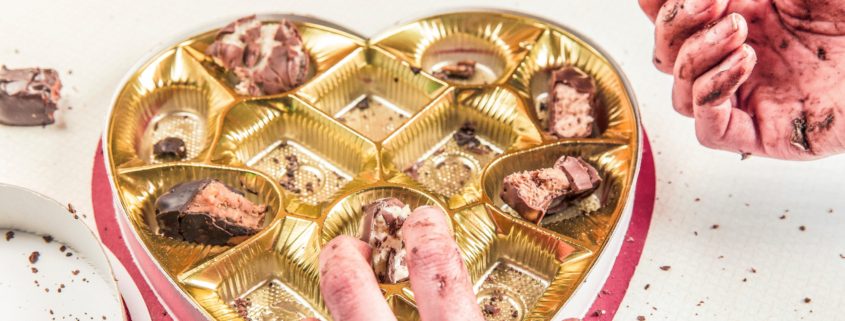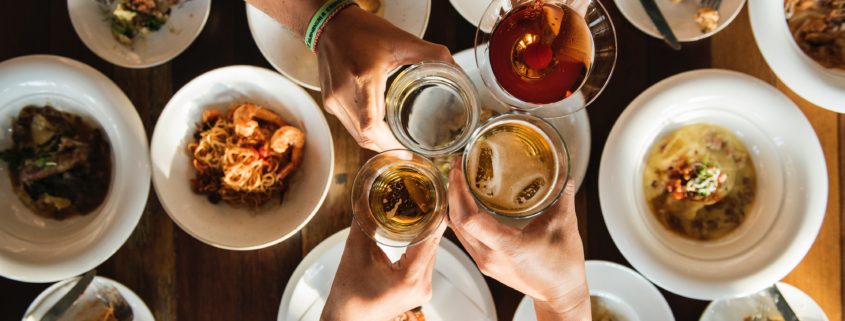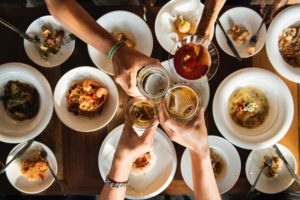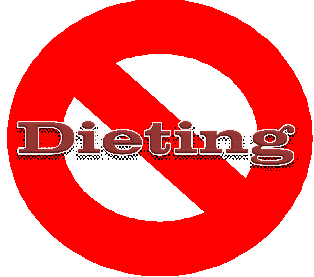Food Deprivation Leads to Rebound Eating
 Overindulging in a food item that you restrict is common if you are a chronic dieter. It actually makes a ton of sense that you’d have intense cravings for a food you won’t allow yourself to have.
Overindulging in a food item that you restrict is common if you are a chronic dieter. It actually makes a ton of sense that you’d have intense cravings for a food you won’t allow yourself to have.
When you restrict a food(s) that you really want to eat, at some point the deprivation becomes so great that the backlash is what we call rebound eating.
Rebound Eating in Action
You start your diet on Monday and promise yourself you will not eat any chocolate. After all, you’ve been enjoying chocolate almost nightly and find it difficult to stop at just a few squares.
Your friend from out of town comes to visit and brings you a box of chocolates. You thank her and think to yourself “I’m not going to eat this; I’m being really good on my diet”. So, you put the box of chocolates away in the cabinet, high up on a shelf.
The next day, your partner spots the chocolate, opens the box and enjoys a piece. He puts the box away, but now you know it’s open. You are feeling a little anxious, you want a piece but at the same time you don’t want because you’ve been “so good”.
As it turns out, because you’ve been “so good”, you decide you deserve to have a piece of chocolate, almost like a reward for being good on your diet. You take the box down, open it up and pop one into your mouth.
You realize you didn’t really taste it; you ate it too quickly. You decide “I’ll just have one more”.
And then, the inner critic voice starts to show up. “Oh darn, I blew it. Why can’t I just keep to my diet. I’m just going to finish what’s there, there are only 4 left, and then I promise I won’t have chocolate again! My diet starts tomorrow!!”
Once you finish the chocolate, you plop down on the couch and feel miserable. You feel so guilty for eating the chocolate, so disappointed in yourself and decide as a punishment, you will skip dinner. The only problem is, you then find yourself bingeing into the evening.
The above example is one way the backlash can happen when you deprive yourself of a food you love.
It’s important to know that eating doesn’t have to be this difficult. Learning to eat to honor your body and your health while enjoying all foods (including chocolate) is part of being an intuitive eater.
It’s time to make peace with food.
Are you ready?
Click here to schedule a time to chat about how you can change your relationship with food.







